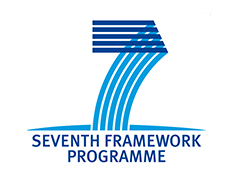
a Drug Strategy Targeting Heat Shock Protein 90 to Combat Metastatic, P53 Mutant Ovarian Cancer: GANNET53
Details
Description
Programme(s)
FP7-HEALTH - Specific Programme "Cooperation": Health
Topic(s)
HEALTH.2013.2.4.1-1 - Investigator-driven treatment trials to combat or prevent metastases in patients with solid cancer
Call for proposal
FP7-HEALTH-2013-INNOVATION-1
Funding Scheme
CP-FP - Small or medium-scale focused research project
Grant agreement ID: 602602
Objective
Epithelial ovarian cancer (EOC) is the most lethal gyncaecological malignancy causing 41900 deaths annually in Europe. The predominance of aggressive Type II tumours (comprised of high-grade serous, high-grade endometrioid, and undifferentiated carcinomas) and primary or acquired resistance to platinum-based chemotherapy profoundly contribute to the high mortality rate. The preeminant molecular hallmark of Type II tumours is the near ubiquitous presence of p53 mutations (in >96% of patients). There is a pressing need for more effective, innovative treatment strategies to particularly improve survival in Type II EOC patients. The two clinical trials GANNET53 and EUDARIO aim to achieve this goal by applying a highly innovative concept that has grown from solid basic research findings made by members of the GANNET53 consortium. This is a drug strategy inhibiting the central chaperone Hsp90 (heat shock protein 90) in p53 mutant (mutp53) EOC. In the GANNET53 trial this innovative Hsp90 inhibiton mechanism is used to target the central driver of aggressiveness and metastatic ability of these EOC cancers - namely stabilised mutant p53 protein - for degradation. In the EUDARIO trial the concept of Hsp90 inhibition is exploited to crucially inhibit DNA repair by rapid decay of key components of the Fanconi anemia pathway as well as of cell cycle checkpoint mediators following DNA damage by platinum-based chemotherapy. The clinically most advanced, second-generation Hsp90 inhibitor currently available (used in >600 patients in unrelated clinical studies) is used, Ganetespib, in a stratified approach in EOC patients with mutp53 Type II EOC. The first part (Phase I) of the GANNET53 trial will test the safety of Ganetespib in a new combination with standard chemotherapy (Paclitaxel weekly) in platinum-resistant (Pt-R) Type II EOC patients. The second part (randomised Phase II) will examine the efficacy of Ganetespib in combination with standard chemotherapy versus standard chemotherapy alone in EOC patients with Pt-R Type II tumours. The EUDARIO trial is a European, multi-center, randomised three-arm open-label Phase II trial in platinum-sensitive Type II EOC patients. It evaluates the safety and efficacy of Ganetespib in combination with Carboplatin on one hand and the Poly(adenosine diphosphate-ribose) polymerase (PARP) inhibitor Niraparib on the other hand in comparison to standard treatment options. We established a highly efficient consortium with previously proven capability and manpower to perform this multicentre clinical trial and assess our innovative therapeutic concept in this deadly disease. Our consortium consists of national clinical trial groups in gynaecological oncology and high-volume University centres as well as noted p53 scientists and 3 innovative SMEs. Since ovarian cancer is defined as a rare cancer a scale at the European level is crucial for the planned clinical trial.
